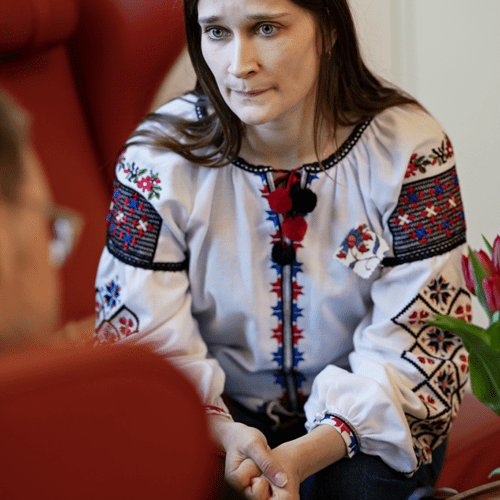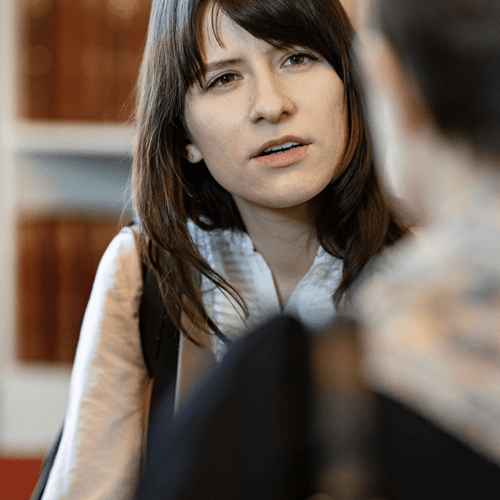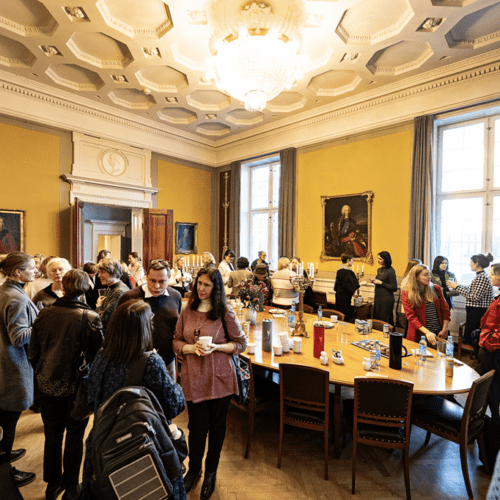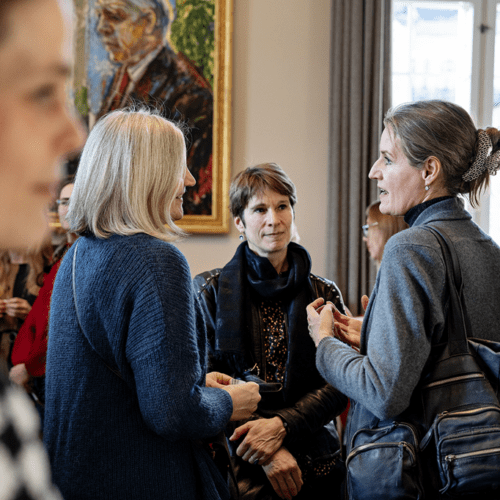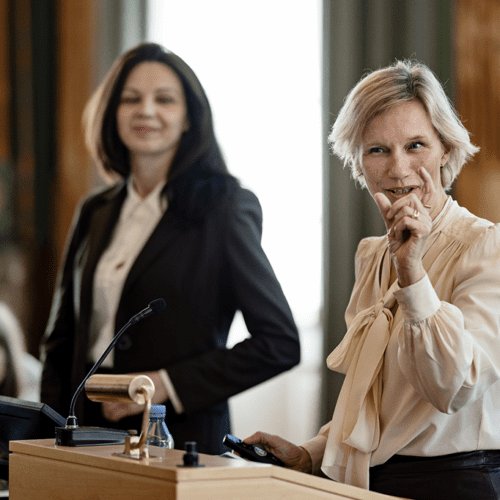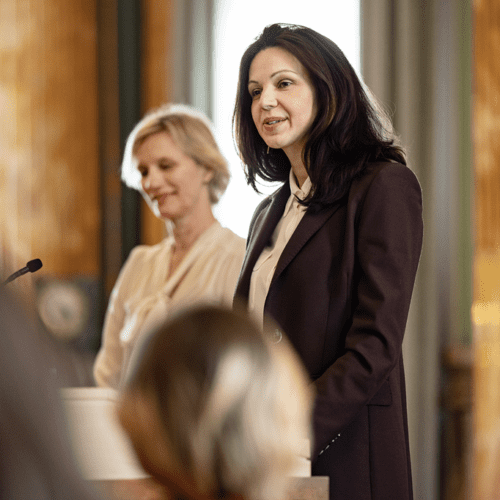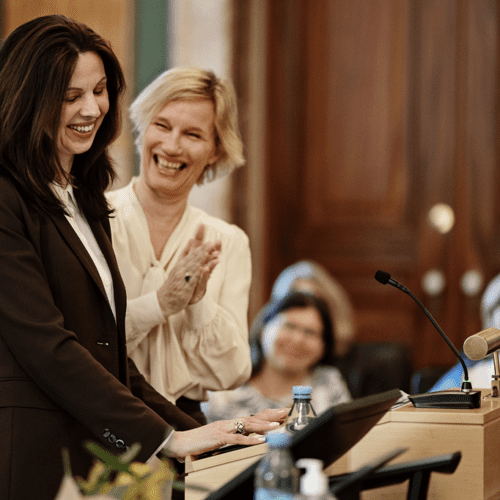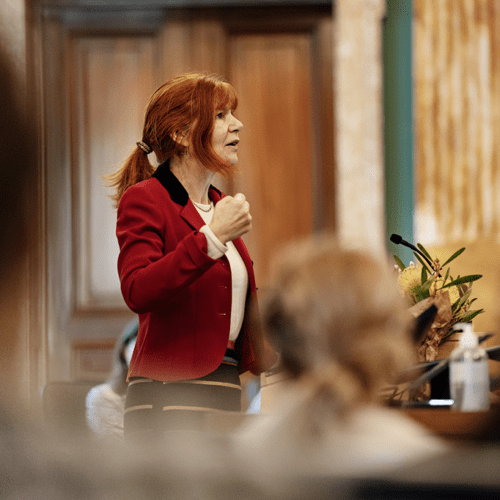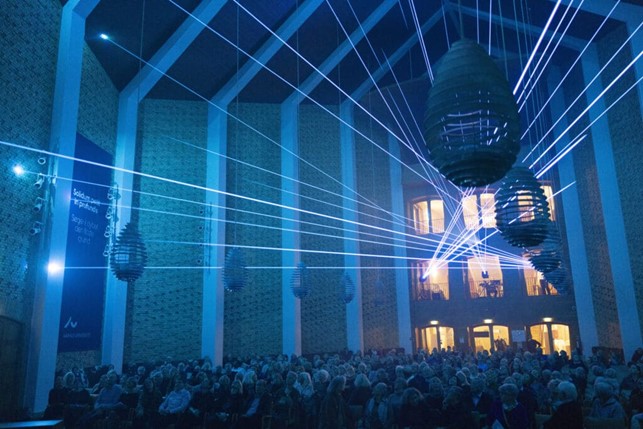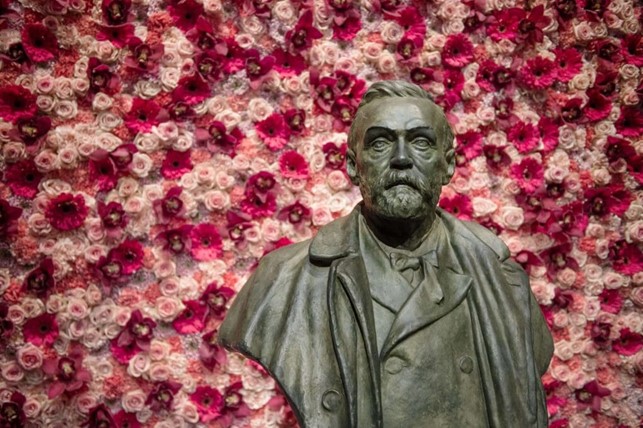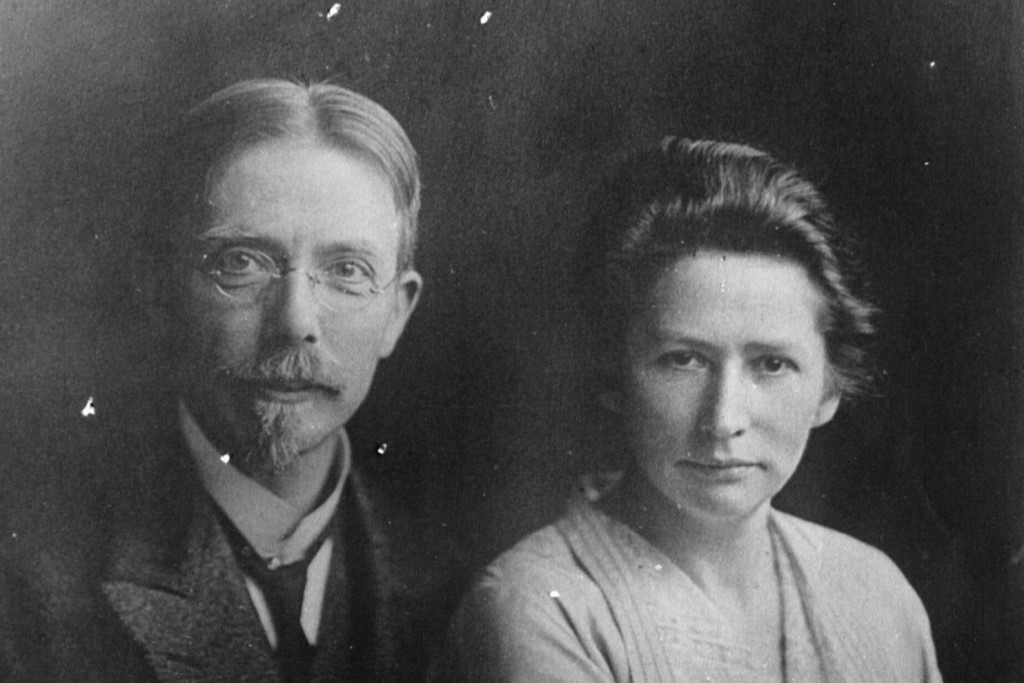The Royal Danish Academy of Sciences and Letters
The fabric of change
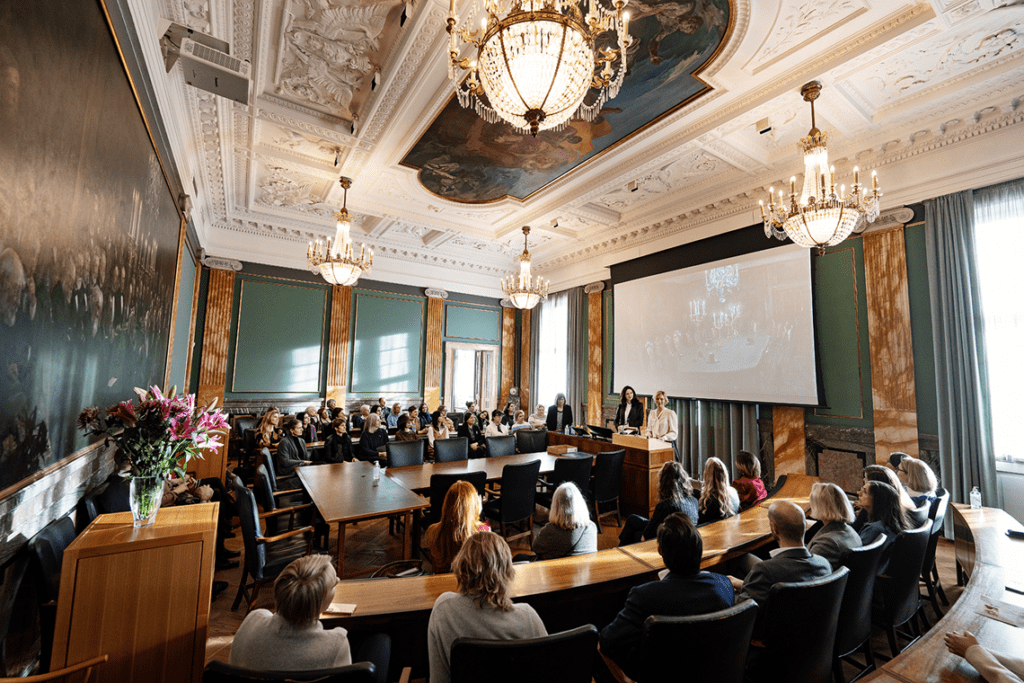
The networking day for Ukrainian researchers at the Royal Academy was a reminder on International Women’s Day of a community standing strong in the face of adversity.
Bright sunlight promising the imminent arrival of spring streams through the high windows of the splendid meeting room, casting long rays on the marble walls and illuminating the numbers on the slide displayed on the screen.
The numbers tell the story of the war: the casualties, the hospitals that have been destroyed, the houses that have been bombed, the children who are missing, injured or killed. Standing next to Academy President Marie Louise Nosch is Kristina Vydoinyk, wife of the Ukrainian Ambassador, who is visibly moved as she reads out the terrible numbers to the audience of mainly women.
– “Over 8 million Ukrainians have left their country because of the war, most of them women and children. Some of you are in this room today”, says Vydoinyk.
Sitting in the audience are not only women who have fled Ukraine, but also Danish academics, since many of the refugees are researchers who are currently living and working in Denmark and who have joined Danish research institutions. They have come here today on International Women’s Day to build up their network and find support.
Shared mission
The Royal Academy and Vydoinyk have a shared mission to improve conditions for the refugees.
In October 2022 the ambassador’s wife set up the Copenhagen branch of Women for Ukraine, a non-profit organisation originally established by Ukraine’s first lady Olena Selenska with the aim of uniting women internationally.
Since the start of the war, the academic community in Denmark has been closing ranks around Ukrainian refugee academics and providing support. Private funds and research institutions like the Royal Academy have joined forces to offer help, initiate mentoring networks and try to secure opportunities for Ukrainian scientists so that they can carry on their research in Denmark while the war continues.
In summer 2022 the Royal Academy, together with international partners such as ALLEA and other science academies, identified ways in which the Ukrainian research community could be helped, summarising them in 10 points. One proposal is to help create better networks for refugee researchers from Ukraine, which is the purpose of today’s event.
When the war is over
Against a backdrop of systematic destruction of laboratories and other research facilities, disruptions to the electricity, heating and water supply in many places, and a loss of learning environments, a future time of peace and thriving research environments seems a long way off. But it is important to remember the vital role of women when that time comes, says Academy President Nosch:
– “Our fellow women researchers will go back when the war is over, and I believe they will revolutionise the academic world in in their home country, returning to Ukraine with an international network, new partners and knowledge of how research is done in other places in the world. They will enrich and enhance their workplaces and will start questioning institutions and the older generation of professors, still predominantly male”.
To enthusiastic applause, a Ukrainian scientist stands up and addresses the audience – Alina Korobeinyk from Aarhus Institute of Advanced Studies. She has a PhD in materials science and took part in a previous networking event at the Royal Academy in autumn 2022. On behalf of the Ukrainian researchers, she thanks the Academy President, whose research has a focus on ancient textiles.
– “We know that you specialise in textiles, which is why we would like to present you with this garment from Ukraine as a token of our appreciation for your tremendous support for Ukrainian academics in Denmark”, Korobeinyk explains.
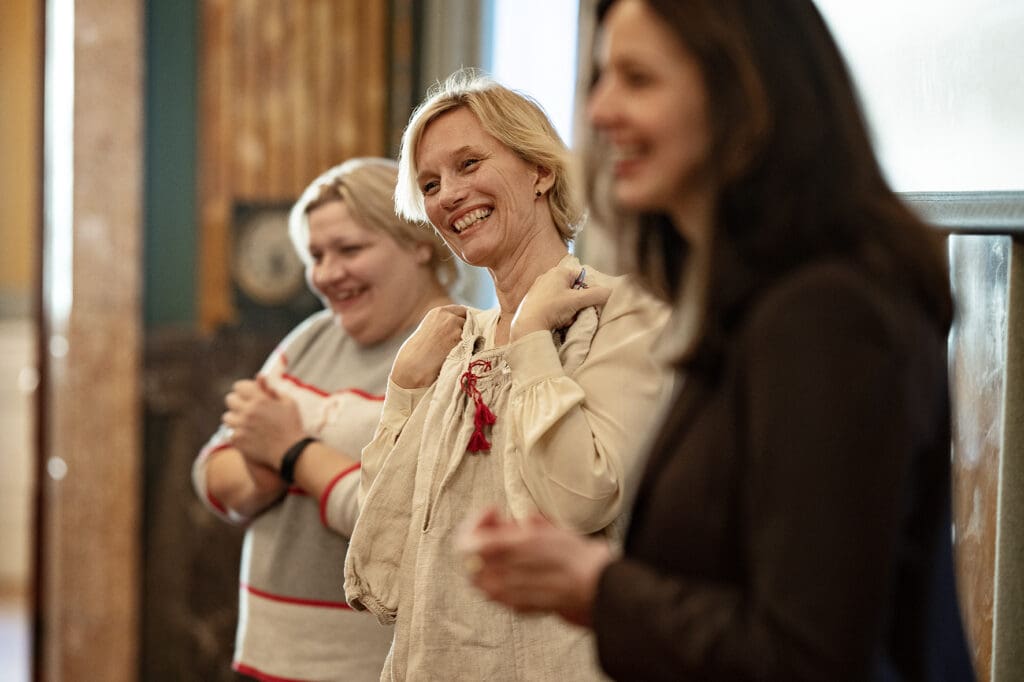
The gift is a traditional dress that is over 70 years old.
And this was not the only reference to textiles during the day. As the participants were walking up the stairway in the entrance hall earlier on, President Nosch invited them to take a small piece of fabric from a box of differently patterned swatches.
She explained that the idea was to find the person with the matching piece of cloth in the same pattern during the coffee/tea break and to find out more about them.
But before the break, it is time for the last presentation of the day by the Rector of Roskilde University, Hanne Leth Andersen.
Roskilde University Rector provides figures and a nuanced picture
Since it is International Women’s Day, there is a hint of fighting spirit in the air, and Andersen outlines the research situation in Denmark, likening it to a leaky pipeline – the higher up the academic hierarchy, the fewer the women: almost half of all PhD graduates in Denmark are women yet only 23% of professors are female. During the course of their careers, more women than men disappear from academia, which means we are losing both resources and talent.
– “Believe it or not, I am only the third-ever female rector from a Danish university so there’s still a great deal to fight for despite things moving in the right direction”, she points out.
Here we could draw inspiration from the Ukrainian research world, where 45% of all researchers in Ukraine are women – the corresponding number in Denmark is 33%.
To a round of applause from a room buzzing with a sense of community despite the unfortunate backdrop to the meeting, the women disperse to enjoy coffee and cake, mingle and network – to find others with the same fabric, maybe others cut from the same cloth.
